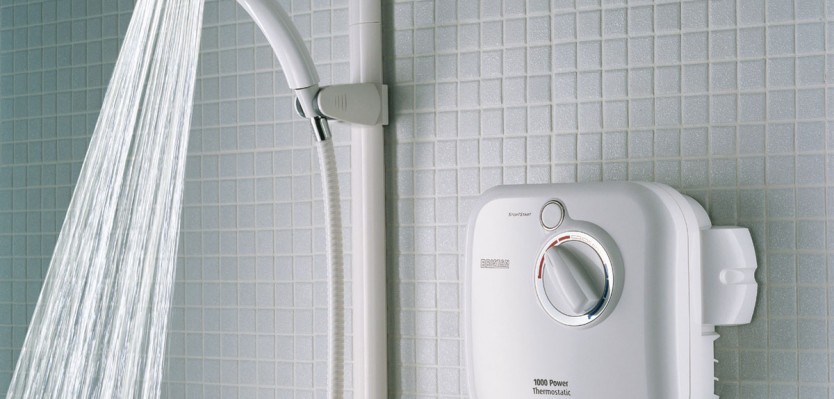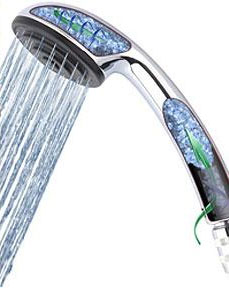
If you shower for more than five minutes, you might be using more than a bath full of water. Some power showers have inefficient water consumption due to high water pressure. To conserve water, it is good to spend less than five minutes showering but there are more ways you can save water. The easiest and most effective way is to invest in a water-saving shower head.
Water Saving Shower Head
 If you don’t already have a water-saving shower head you can buy one for as little as £25 and installation is easy. Your shower head will unscrew by hand and can easily be replaced in just a few minutes. Two types of water saving shower heads are available.
If you don’t already have a water-saving shower head you can buy one for as little as £25 and installation is easy. Your shower head will unscrew by hand and can easily be replaced in just a few minutes. Two types of water saving shower heads are available.
The most common saves water by aerating the water, which is the process of infusing air into the water flow. This reduces water consumption by up to 50% as some of the water is replaced by air bubbles. The disadvantage to this type of shower head is the reduced water pressure.
Shower heads with new Pulsating Technology provide a similar water saving but without any loss of water pressure. This is achieved by supplying water at a high pressure but instead of a continuous flow, the water is turned off and on 30 times per second. A water saving is achieved each time the water flow is turned off. The shower experience feels normal because the pulsating is fast enough for interruption in water flow to go unnoticed. Pulsating shower heads are more expensive than aerating shower heads, starting at around £45 each.
Remember to check your shower head does not drip or leak when turned off.
How to Save Water
Installing an efficient shower head is not the only way to conserve water. Before getting in the shower, many people will first run the water to check the temperature but there is no need to do this if the thermostat is already at a comfortable setting. After you are in the shower, try reducing the power or pressure setting to save water.
By applying all these water conservation techniques, your shower will use only a fraction of the water it previously consumed.



